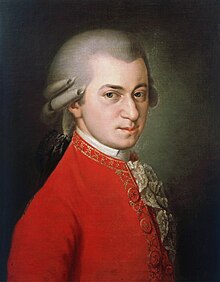User:JSBrowand13/Charles William Frederick of Nassau
Charles William Frederick, Prince of Nassau-Weilburg | |
|---|---|
| File:Arms of Nassau.svg.png Charles William Frederick, Prince of Nassau-Weilburg | |
| Born | 1 May 1775 Kirchheimbolanden |
| Died | 11 May 1807 (aged 32) Weilburg |
| Noble family | House of Nassau |
| Spouse(s) | Elisabeth Brua of Lancaster |
| Father | Karl Christian of Nassau-Weilburg |
| Mother | Princess Wilhelmine Carolina of Orange-Nassau |
Charles William Frederick, Prince of Nassau-Weilburg (Karl Wilhelm Friedrich August; 1 May 1775, Kirchheimbolanden - 11 May 1807?, Weilburg) was the second of the two surviving sons of Charles Christian, Prince of Nassau-Weilburg and his wife Princess Carolina of Orange-Nassau.
Biography[edit]
Early Life[edit]
Karl Wilhelm Friedrich August von Nassau was born 1 May 1775 at Schloss Kirchheimbolanden as the fifth surviving child of his mother Carolina, Princess of Orange-Nassau.

Karl's emotionally-lacking youth was spent in the company of his four surviving older siblings Marie, Louise, Friedrich, Karoline and his two younger sisters Amalie and Henriette. Marie left around 1780 for the Quedlinburg Abbey to become a nun. Karl experienced the deaths of his months-old brother in 1784 and the stillborn birth of another the following year. In 1786, his older sister Louise was married in Kirchheim; Karoline was soon married off as well in 1787. When he was only 13, his father died and his older brother Friedrich became Fürst von Nassau-Weilburg. His older sisters gone and his brother running the Principality, Karl Wilhelm devoted himself to his studies.
Young Scholar[edit]
Karl's introduction to education was with music. Following in his mother's footsteps, Karl was intrigued by music, and loved to attend performances with her. After Mozart once played in concert at their castle, he asked his mother for lessons in piano and violin, and began to study the works of composers such as Dietrich Buxtehude, J.S. Bach, Henry Purcell, George Frederick Handel, and Joseph Haydn. He quickly became enamored with classical and baroque music, and was known in the family to be an extremely bright child and competent composer and musician.
However, his social skills were notably not developed, as he found everyone he cared for left or died soon. His father died when he was young and his older brother was the only one with whom he had sustained contact with since birth. Thus, he wrote in his journal on his birthday 1789:
"I care not for many people, as they care not for me. I am forced into ridiculous clothing and sent to social gatherings where I converse with who they call 'Europe's Finest', and yet, all they care for is marrying off their daughters, seeing their eldest sons to be the slothful nobles they are, and the rest high into the military ranks, or some other worthy profession. I find these gatherings sad when, talking to an elderly Duchess or a shy young bachelor Count, I discover two people in one. On the exterior is the noble face of 'Duty & Loyalty' to their families and to the royalty, but on the interior are all those other virtues ignored or forgotten: Love, Truth, Justice, Curiosity, and Wisdom."

Karl educated himself, with the help of numerous private tutors, in the sciences and maths, music, history, politics, religion, philosophy, and virtue. He also dabbled in painting and drawing, and the other visual arts. He was particularly interested in philosophy and politics, and the role of nobility (that is, his own) in society. He debated the nature of class, and questioned egalitarianism, and studied the histories of America and the Revolution there and in France. When he was 16, he began to question Christianity and the existence of God, following his extensive education in philosophy. He believed philosophy and music were the most valuable of all the things he had learnt, for music comes from the heart, and philosophy the mind, and all the others, religion, maths, science, history, and virtue were subsets of these. He kept these thoughts and more bound in his journal, hidden from his family, who frowned upon such things.
Sibling Rivalry[edit]
Forced to abandon many of their estates to French gains, the family Nassau moved northward. In 1806 Friedrich and his cousin merged their lands into the Duchy of Nassau. Then 32, an opinionated Karl had developed plans and ideas of how to run the Duchy. He wanted his cousin to bypass his brother and title him Duke. When this didn't work, he attempted to influence his brothers decisions in the country.
Titles and Styles[edit]
- 28 November 1788 - 14 June 1792: His Serene Highness The Hereditary Prince of Nassau-Weilburg
- 14 June 1792 - 11 May 1807: His Serene Highness Prince Karl Wilhelm Friedrich August of Nassau-Weilburg
- 11 May 1807 - : His Serene Highness Prince Karl Wilhelm Friedrich August of Nassau
Ancestry[edit]
| Ancestors of JSBrowand13/Charles William Frederick of Nassau | |||||||||||||||||||||||||||||||||||||||||||||||||||||||||||||||||||||||||||||||||||||||||||||||||||||||||||||||||||||||||||||||||||||||||||||||||||||||||||||||||||||||||||||||||||||||||||||||||||||||||||||||||||||||||||||||||||||||||||||||||||||||||||||||||||||||||||||||||||||||||
|---|---|---|---|---|---|---|---|---|---|---|---|---|---|---|---|---|---|---|---|---|---|---|---|---|---|---|---|---|---|---|---|---|---|---|---|---|---|---|---|---|---|---|---|---|---|---|---|---|---|---|---|---|---|---|---|---|---|---|---|---|---|---|---|---|---|---|---|---|---|---|---|---|---|---|---|---|---|---|---|---|---|---|---|---|---|---|---|---|---|---|---|---|---|---|---|---|---|---|---|---|---|---|---|---|---|---|---|---|---|---|---|---|---|---|---|---|---|---|---|---|---|---|---|---|---|---|---|---|---|---|---|---|---|---|---|---|---|---|---|---|---|---|---|---|---|---|---|---|---|---|---|---|---|---|---|---|---|---|---|---|---|---|---|---|---|---|---|---|---|---|---|---|---|---|---|---|---|---|---|---|---|---|---|---|---|---|---|---|---|---|---|---|---|---|---|---|---|---|---|---|---|---|---|---|---|---|---|---|---|---|---|---|---|---|---|---|---|---|---|---|---|---|---|---|---|---|---|---|---|---|---|---|---|---|---|---|---|---|---|---|---|---|---|---|---|---|---|---|---|---|---|---|---|---|---|---|---|---|---|---|---|---|---|---|---|---|---|---|---|---|---|---|---|---|---|---|---|---|---|---|---|
| |||||||||||||||||||||||||||||||||||||||||||||||||||||||||||||||||||||||||||||||||||||||||||||||||||||||||||||||||||||||||||||||||||||||||||||||||||||||||||||||||||||||||||||||||||||||||||||||||||||||||||||||||||||||||||||||||||||||||||||||||||||||||||||||||||||||||||||||||||||||||
